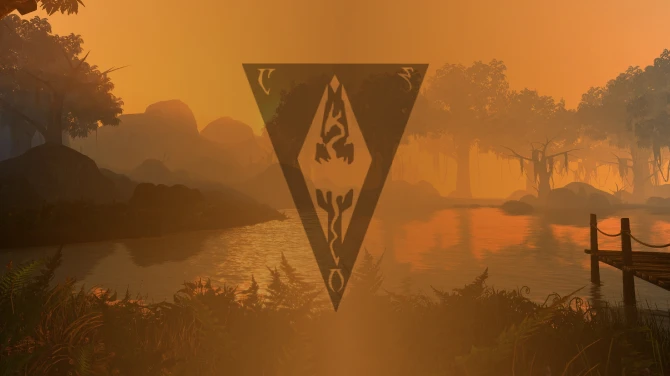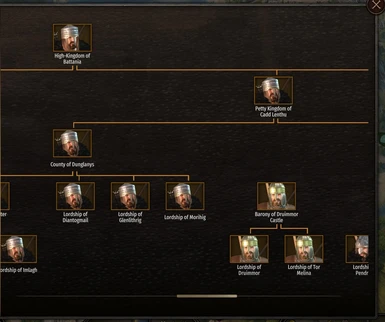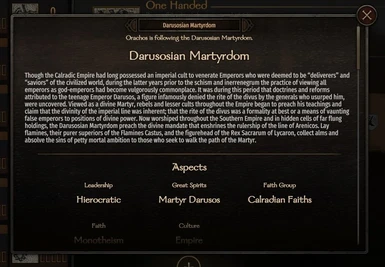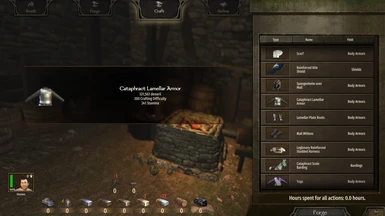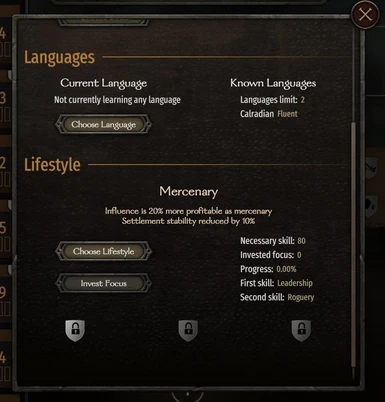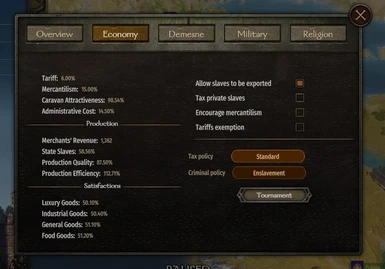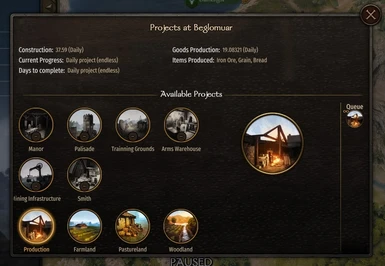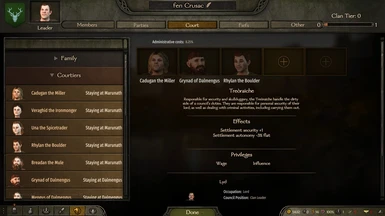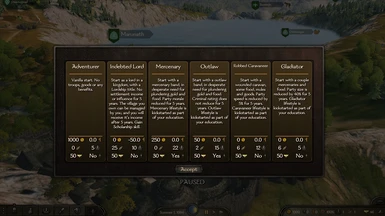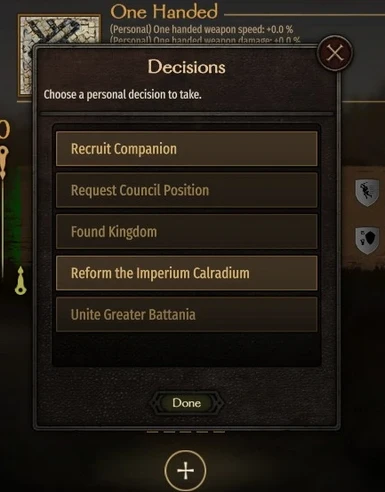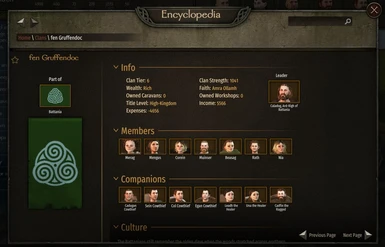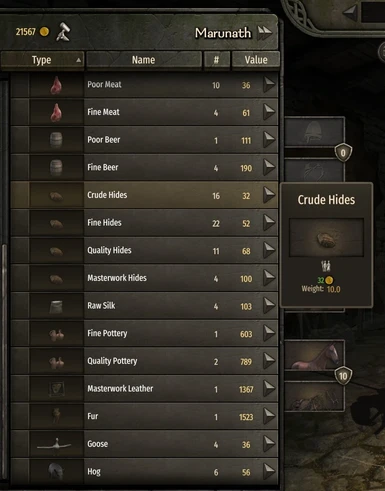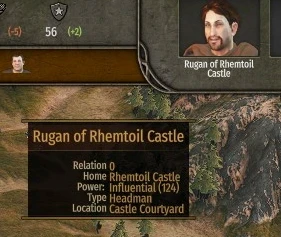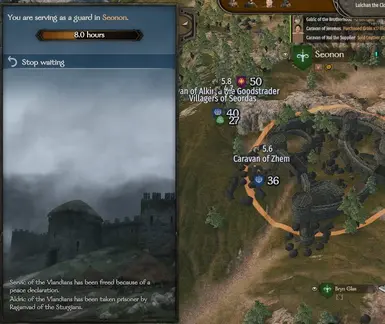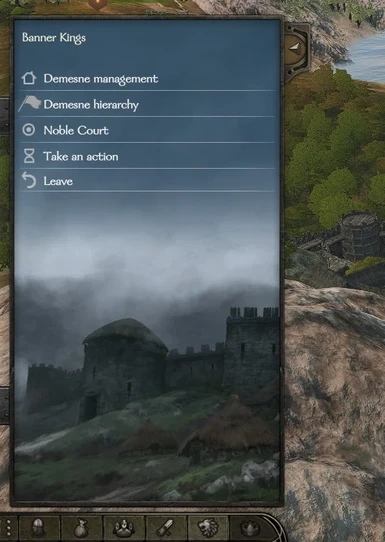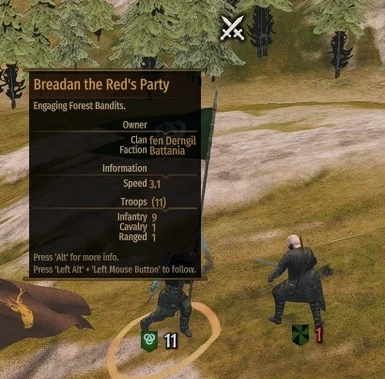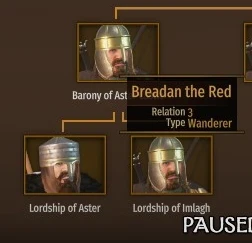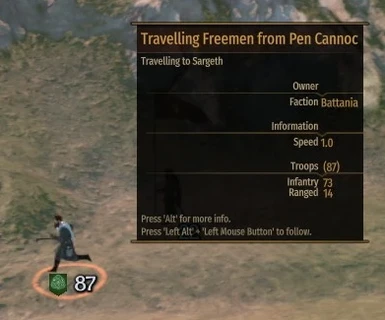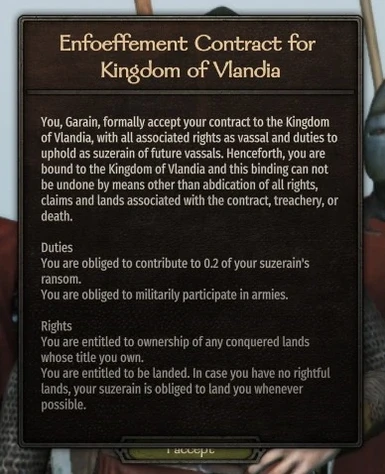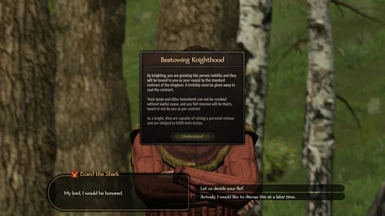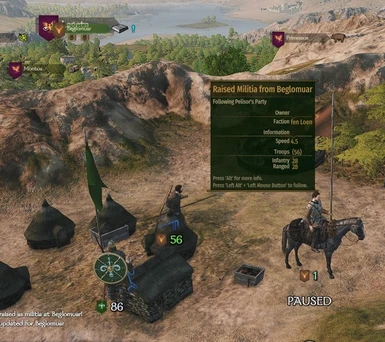File information
Last updated
Original upload
Created by
Basileus TheUnknown Sval CarrascoUploaded by
ThresherMawVirus scan
Safe to use
Tags for this mod
Current section
About this mod
Banner Kings is a suite of features to deepen non-combat gameplay. Populations, feudal titles, village projects, settlement management overhaul & more.
- Requirements
-
Nexus requirements
Mod name Notes ButterLib 2.4.1 or higher Harmony 2.2.2 or higher Mod Configuration Menu v5.0.4 or higher UIExtenderEx 2.3.1 or higher Mods requiring this file
Mod name Notes Banner Kings - Russian Translation (1.3.2) 1.3.2 Banner Kings - Russian Translation by KykkA 1.2.7.6-1 Banner Kings - Traduction francaise Banner Kings - Turkish Translation (1.3.1.1) Banner Kings - Turkish Translation 1.2.8 Banner Kings - Ukrainian Banner Kings Cultures Expanded Banner Kings Cultures Expanded - Ukrainian Banner Kings Integrations Banner Kings Traducao Portugues (BR) Banner Kings Traduccion a el Espanol instalar antes de descargar esta traduccion.! Belarusian Banner Kings Belarusian Banner Kings Cultures Expanded Europe 1100 for Banner Kings Required for kingdoms and their titles Kaoses Tweaks for BannerKings Lesser Kingdoms (Native - DRM - Calradia Expanded - Banner Kings) For optional titles patch Polskie tlumaczenie do Banner Kings Traduccion parcial para Banner Kings -open source- Es el mod original, ósea... No tiene sentido descargar la traducción si no tienes el mod XD Uebersetzungspacket-German - Permissions and credits
-
Credits and distribution permission
- Other user's assets All the assets in this file belong to the author, or are from free-to-use modder's resources
- Upload permission You are not allowed to upload this file to other sites under any circumstances
- Modification permission You must get permission from me before you are allowed to modify my files to improve it
- Conversion permission You are not allowed to convert this file to work on other games under any circumstances
- Asset use permission You must get permission from me before you are allowed to use any of the assets in this file
- Asset use permission in mods/files that are being sold You are not allowed to use assets from this file in any mods/files that are being sold, for money, on Steam Workshop or other platforms
- Asset use permission in mods/files that earn donation points You are not allowed to earn Donation Points for your mods if they use my assets
Author notes
This author has not provided any additional notes regarding file permissions
File credits
Thank you Alex002, DrunkenFrenchman & others for testing.
Credits to Carrasco for project reorganization, codev.
Credits to BrianYaksha for religions lore.
Credits to TheUnknown for several features & coding contribution.
Credits to Basileus (ThresherMaw) for scripting, design, mod creation.Donation Points system
This mod is not opted-in to receive Donation Points
-
Translations
- Ukrainian
- Turkish
- Spanish
- Russian
- Portuguese
- Polish
- German
- French
-
Translations available on the Nexus
Language Name Russian Author: DaemonFroll Banner Kings - Russian Translation (1.3.2) Other Author: Denis Makouski - Reiko Belarusian Banner Kings Ukrainian Author: Velizariy Banner Kings - Ukrainian German Author: Neverzero2006 Banner Kings --- Deutsch French Author: Daneel53 Banner Kings - Traduction francaise Turkish Author: enisn Banner Kings - Turkish Translation (1.3.1.1) Portuguese Author: Arhamis Banner Kings Traducao Portugues (BR) Turkish Author: Mattdown Banner Kings - Turkish Translation 1.2.8 Spanish Author: Dante banner king espanol by dante Russian Author: KykkA Banner Kings - Russian Translation by KykkA 1.2.7.6-1 Spanish Author: xSebz Banner Kings Traduccion a el Espanol Polish Author: JeziorPL Polskie tlumaczenie do Banner Kings Spanish Author: jdbs25 Traduccion parcial para Banner Kings -open source- - Changelogs
-
-
Version 1.3.2
- - Added a new mechanic: Radical / Rebel groups. Currently only supports a single type.
- - Rebalance and fixes for diplomacy system
- - Increased influence cap and gain for titled, peer lords. More armies
- - Rebalancing of economy: demand for goods more based on prosperity and less on population count, reduced village production, significantly increased caravan count, improved supply of gold to town markets, among other changes
- - Improved AI budget and access to recruits, more units
- - Animal food consumption on sand / snow / water now based on animal type, largely reduced
- - Reduced AI "Kingdom budget" contribution by 90%, more AI money, more armies and soldiers
- - Added gold and influence for AI at campaign start
- - Disfavoured knights from inheritances
- - Adjusted troop availability based on relations, more troop slots for AI
- - Added support for titles without de jure holders
- - Reduced minimum peers requirement
- - Performance bottleneck fix / religion fervor calculation tweaked
- - AI recruits companions and knights at game start
- - Improved Demesne Hierarchy and Clan page UIs
- - Added support for independent duchy titles
- - Reworked logic for settlement claimant voting
- - MCM setting to alter limit of wandering companions in the world (max 1 per town)
- - Added troop spawn modding support through XML for BKCE and other mods
- - Fixed distant caravan party visibility
- - Fixed a food consumption issue (infinite siege)
- - Fixed settlement election not working
- - Fixed titles not drifting
- - Fixed Storymode and other issues thanks to Github contributions
- - Crash fixes
-
Version 1.3.1.3
- - Warscore calculation improvements and fixes
- - Fixed performance bottleneck
- - Fixed distant caravan party visibility
-
Version 1.3.1.2
- - Duchy needs de facto control for usurping
- - Removed party AI changes (fixes patrolling around?)
- - Performance improvements
- - Increased availability of mercenary troop equipment and fixed culture clauses to determine what items show up. Fixed skill preset tooltips to show correct skills
- - Added animal food consumption on desert and snow
- - Increased costs of custom troops
- - Fixed a crash on kingdom tab
- - Fixed a possible crash on merc troop editing
- - Likely fixed caravan fief targeting
- - Fixed a crash associated with wage differences
-
Version 1.3.1
- Some optimizations to saved data amount
- Parties should go buy food more often when needed
- Parties buy food visiting castles
- Refactored village building code to avoid save inconsistencies. Wipes out current village buildings
- Villages get free buildings based on their size for a single time. Works after the wipe.
- Demesne hierarchy crash fix
- Increased castle trade penalty significantly
- Added clan renown setting by default at 300% of vanilla
- Parties scale up based on title rank of party leader
- Improved all supply tooltips on morale and party size explanations
- AI claims and usurps duchies and kingdoms
- Caravans buy more underpriced goods
- Improved caravan target decision making
- Adjusted mercenary career troops available equipment and recruitment, recruitable on their respective culture fiefs, regardless of kingdom service
- Improved consistency of party supplies effect on party size. Can now be positive.
- Improved explanation of recruiting limits tooltip
- Improved availability of beer, linen and arrows in towns
- Faster innovations
- Added passive skill effects to new and vanilla skills
- Adjusted equipment of career mercenaries
- Parties are less aggressive on food stocking
- Removed battanian empire decision
- Fixed gentry spawns at campaign start
- Fixes to influence cap calculation
- Fixed indefinite spawn of shipping lane merchants
- Fixed shipping travel cost
- Fixed estate parties standing still
- Fixed troops not changing to era
- Fixed kingdom general fatigue not going down
- Fixed a crash associated with villages
- Fixed crash on starting campaign twice on same game session
- Fixed a crash on campaign start and another on loading new saves, village rework related
- Fixed a loading crash related to titles
- Fixed mercenaries being council candidates
- Fixed a decision that could lead to Kingdom tab infinitely opening
- Added eggs, created by birds across inventories
- Added a loot scale modifier, by default at 50%
- Reduced the minimum price for equipment items, decreasing prices where there is high supply
- Increased basic goods production in towns based on the craftsmen population, more supply overall
- Increased supply of pottery, linen, beer and arrows
- Increased the default good quality of workshops: more valuable outputs
- Reduced troop upkeeps
- Reworked fief revenues. More based on consumption of items, very reduced passive population taxes
- Added the ability to control spawn of multiple item cultures in settlements (for BKCEs update)
-
Version 1.3
- Changelog is still being made and is available at: https://github.com/R-Vaccari/bannerlord-banner-kings/wiki/Changelog
-
Version 1.2.7.6-1
- - Added a new book
- - Fixed a crash case on ruler election
- - Fixed a crash case on party supplies
-
Version 1.2.7.6
- - Added 9 new Books
- - Books that dont yield focus point can now yield a personality trait you can accept or not
- - Added 2 new lifestyles: Commander, Artisan
- - Added a new religion choice popup with banners
- - Added a new demesne law type and 2 new army types: Hordes and Legions
- - Added dialogues to convert clan members to your faith
- - Heroes can now have 2 positions within the same court: one in the privy council, another in the extended council.
- - Reworked council position request influence costs
- - Foreign troops now decrease party morale
- - Adjusted AI opinions on council elections, feudal and republican ruler elections
- - Reduced limit for buildup of supplies (% of party size)
- - Staying in town now undoes supply buildup as opposed to just not increase it
- - Increased influence cost for calling parties to armies based on influence cap. Same clan parties are free.
- - Court expenses no longer tick grace without a court location
- - Castle court buy items from nearby town
- - Improved various tooltips related to knighthood, books and council request
- - Added and changed various localization keys
- - Fixed court expenses not being saved
- - Fixed religious festival available when feasts are not, leading to crash
- - Fixed a crash on demesne hierarchy panel
- - Fixed missing supply dialogues with quartermaster
- - Possible fix to missing knights in party screen (could not reproduce it)
- - Possible fix to hero encyclopedia traits missing due to other mods
- - Fulfilled gouncil positions yield grace
- - Increased party influence costs to call to army, fixed clan parties not costing 0
-
Version 1.2.7.5
- - Added court grace and expenses feature
- - Fixes and improvements to supply system
- - Fixed a rare crash possibility
- - A couple UI/tooltip improvements
-
Version 1.2.7.4-2
- - Fixed a crash on load / campaign start
- - Fixed party supplies setting name
-
Version 1.2.7.4-1
- - Added a MCM configuration to edit / disable party supplies rates
- - Item modifiers now affect supply consumption efficiency. An item with 1.5 price modifier is equivalent to consuming 1.5 items for a given supply requirement
- - Reduced base supply requirement rates of military equipment (affect party size limit)
- - Increased AI rate of buying party supplies
- - Added Wiki documentation about supplies and other features at Github
- - Fixed a crash associated with map event tick / bandit parties
- - Fixed supply requirements not being saved
-
Version 1.2.7.4
- - Added Party Supplies feature
- - MCM setting to disable diplomacy changes
- - Fief stability now reduces amount of bandits around it
- - Caravan robbers limited to 10% of bandits
- - Buying or changing workshop to a production that competes with other shop owners causes relation loss
- - Nerfed prosperity growth
- - Removed market taxes
- - Fixed double wage
- - Fixed town markets inflating instead of deflating
- - Fixed a few crash cases
-
Version 1.2.7.3
- - Added cultural names to knights
- - Added some hooks to gain/lose new personality traits
- - Castles now buy materials from nearest town
- - Village projects are back to normal, no policy or materials required
- - Fixed definitely a crash associated with council election
- - Fixed a crash when a guest type is not available
- - Fixed companion being a guest and killed after being recruited
- - Fixed minimum peers / demesne hierarchy crash
- - Fixed definitely the court smith crash
- - Fixed a crash case with project materials
- - Fixed a crash on council member fired
- - Fixed clan leader party wages being 0
- - Fixes to some castles in title hierarchy (new game only)
- - Fixed settlements reverting to original culture for a day on game loading
- - Fixed population accumulating in demesne hierarchy panel
-
Version 1.2.7.2-2
- - Overhauled town project construction. Projects require materials. Construction doesnt happen without construction policy.
- - Town governors will buy materials required for projects using fief income to cover costs.
- - Town management extension: materials and helping texts
- - Removed market demand for limestone and marble so they accumulate
- - Project materials have their prices increased when required to stimulate caravan import of them
- - (Patreon request) Added MCM option so AI stops dismissing extra parties
- - Reduced income of town market to deflate markets
- - Different governor types will have different settlement effects
- - Updated demesne management tabs so tooltips always show, fixed misalignments
- - Fixed a crash with council elections. When a single candidate is available (Spouse) they are appointed instead of elected
- - Fixed a crash associated with bandit heroes
- - Fixed productivity and taxes of tenants population
- - Fixed a crash with AI dismissing parties
- - Fixed crash on court smith click
- - Fixed missing texts for some council positions
- - Fixed a case where governor culture yielded negative instead of positive loyalty
-
Version 1.2.7.2-1
- - Added a time restriction for a council position to be changed
- - Added a new demesne law regarding high councils being appointed or elected
- - Fixed a crash on vanilla slaughter method
- - Fixed guests spawning daily
-
Version 1.2.7.2
- - Added a new social class: tenants. The correlation between tenants and serfs is dictated by a new Demesne Law.
- - A couple deflationary measues: Fief tax and mine revenues are reduced; Market gold is destroyed over time
- - Soldier recruitment and upgrade prices increased significantly
- - AI will now disband non-leader parties during peace in order to save more money
- - Added a criminality system. Currently it only supports bandit heroes as criminals. Criminals can suffer different sentences. Bandits can be sentenced to death without consequences.
- - Added Court Guests, and Court Location. CK-like court amenities will be made.
- - Added the Relocate Court decision
- - Recruit Companion decision overhauled into Invite Guests instead. Guests are found in the court's location's keep. Guests can leave randomly.
- - (Patreon request) Added a button on inventory to strip all gear from all available heroes
- - (Patreon request) Added a minimum Full Peers tracker for kingdoms. Not meeting minimum peers significantly reduces the ruler's influence cap
- - Added a dialogue option to directly bequeath full peerage to a lesser Peer / gentry clan leader
- - AI gentry clan leaders will now start their own full peerage elections
- - Hero encyclopedia: new extension with a table of hero's traits
- - Added 5 new personality traits. Not all have effects yet
- - Added 3 aptitude traits
- - Vanilla political traits have their values increased for all heroes based on their personalities and aptitudes. AI has stronger opinions on elections
- - Various village production adjustments: Villages now make products with modifiers. Increased production of acreage based goods. Reduced poulty production on most cultures, least productive is aserai and most productive is vlandia, reduced horses production
- - Adjusted government and gender law change elections so AI has stronger opinions
- - Adjusted crafting stamina to scale more with Smithing and be able to go over 300
- - Localization updates
- - Fixed council task efficiency not ticking up
- - Fixed a crash associated with bandit heroes
- - Fixed a crash on clan/kingdom tab that required saving and reloading
- - Fixed gentry clans being elimited on leader death
- - Fixed a crash associated with null soldiers in parties
- - Fixed a crash associated with clanless heroes leading parties, likely caused by other mods
- - Fixed notables being converted daily, now it's AI only and randomly
- - Fixed human sacrifice showing hero options that are not adequate
- - Fixed court smith competences
- - Other small fixes
-
Version 1.2.7.1
- - Added Bandit Heroes feature
- - Added 3 new bandit party types roaming on the map
- - New MCM settings, including important ones for bandit party count and hideout spotting
- - Demesne hierarchy now can access all existing kingdom hierarchies
- - Dialogue options to grant more properties to existing knights
- - Localization updates
- - Adjustments of council position and demesne law texts
- - Added explanations for all cases of a candidate not being acceptable to a council position
- - Buffed arrow and ammo base production in towns
- - Fixed a performance issue associated with council positions
- - Fixed a compatibility issue with Hero page extensions
- - Fixed a wrong condition that impeded granting knighthood with an estate
- - Fixed various other reported small issues
-
Version 1.2.7
- - Port to Bannerlord 1.1
- - Ported requirements to following versions: Harmony 2.2.2, Butterlib 2.6.3, UIExtender 2.6 MCM 5.5.5
- - Fully reworked the council system with new positions, UI, council tasks, mechanics. Existing positions will be wiped out.
- - Influence limit feature. A soft cap for influence, limit and explanation available in encyclopedia clan pages.
- - New MCM settings
- - Clan page extensions: demesne / vassal limits, influence limit, vassals list
- - Hero page extension: knight clan creation progress
- - Fief page extension: workshop list with tooltips that explain workshop cost, owner etc
- - Removed peerage request kingdom peace condition
- - Reworked demesne hierarchy tooltips
- - New succession type: Feudal elective
- - Improvements to succession and inheritance systems
- - New localization string ids
- - Fixed a VANILLA bug that caused FREEZING over time. Thanks to Delinard and Cephas for their diligent work.
- - Removed a vanilla cheat that provides parties with money to buy their food. Clan owner pays instead.
- - Various fixes to bug reports
-
Version 1.2.6.6
- - Workshops will be seized from all enemy heroes on war declaration and fief conquer. If there is no adequate notable, the towner owner gets it. If the town owner has reached workshop limit, they will grant the workshop to another clan. Player chan choose who to grant to in this case.
- - Fixed knights death triggering clan leadership inheritance
- - Removed clan split temporarily. Fixes a hard to debug crash on inheritance triggered
- - Crash fix on Character tab when current hero misses a faith
- - Crash fix on closing marriage contract when proposer/proposed are missing
- - Crash fix on talking to darusosian preachers when missing a kingdom
- - Fixed court hero information compounding
- - Fixed gentry children or dead heroes being put in villages
-
Version 1.2.6.5
- - Added mod support to the mod. Documentation can be found here https://github.com/R-Vaccari/bannerlord-banner-kings/wiki/Modding-BK
- - Added dozens of localization keys. Thanks to Daneel53 for pointing out several strings needing ids
- - Added several new MCM settings
- - Added an entirely new Sturgian faith. Works on saves. Can be assumed by any Sturgian through village preachers. Original idea by Lordflash
- - Added 2 new rites to Amra faith, 1 to Darusosian Martyrdom. 2 new rite types: weapon sacrifice, religious festival. More rites planned.
- - Added at least 1 new cult to all faiths.
- - Added some missing cult and doctrine effects.
- - Various adjustments to religious dialogues and Religion tab
- - Notables will now be spawned with faith and culture based on local culture and faith mix
- - Added a POC config with dozens of banners for Gentry clans, credits to Gfornost
- - (CEK) Added Gentry NPC templates and clan names to most cultures
- - Fixed mod data inconsistency when starting a campaign after having loaded another save. Fixes problems such as: missing BK menu option, Recurrent error about estates.
- - Vassalage law allows more access to kingdom lords during wars
- - Fixed a case where cultural assimilation would be negative instead of positive
- - Fixed party creation not being possible for spouses
- - Fixed a case where being Marshal didn't grant army creation privilege
- - Fixed player now being awarded a lordship with lord start when ruling clan has no lordships. Any lordship from any clan will be picked
- - Drafting laws that increase recruitment price no longer have effect on their own faction members. Should allow AI in most kingdoms to field more troops.
- - Some crash fixes
-
Version 1.2.6.1
- - Added new MCM options
- - Added 100+ localization ids for strings
- - Increased agricultural output of settlements
- - Increased settlement food stocks
- - Added full peerage to ruling clans when missing it
- - Fixed excessive production of horses in villages
- - Fixed an issue with village incomes
- - Fixed a recurring error with estates creation
- - Fixed a population consistency issue with villages
- - Fixed a case where items couldn't be crafted despite having materials
- - Fixed other reported issues & crashes
-
Version 1.2.6
- - Increased performance by changing various things to pseudo weekly ticks instead of daily ticks.
- - Adds new Gentry clans feature & Call Banners decision. Information on https://github.com/R-Vaccari/bannerlord-banner-kings/wiki#gentry-clans
- - Added dozens of new clan names to all cultures
- - Influence for calling non-vassal parties is doubled.
- - Names update more frequently / fixes character creation or child names not updating.
- - Made all education features faster (reading, language learning, lifestyle progress).
- - Removed gender restrictions to forming armies.
- - Various updates to AI behavior with feasts.
- - Updates to garrison party behavior.
- - MCM option to disable feasts.
- - Fixed the army participation duty not being triggered.
- - Fixed books only giving skill focus when player had a focus point available
- - Fixed AI army creation for females. Does not block clan leaders anymore.
- - Fixed skill xp when skill is 500 or more, no more gains at this point.
- - Fixes several reported crashes.
-
Version 1.2.5.9
- - Performance improvements
- - Added record of last payment made by villages, accessible in demesne management.
- - Decisions are now organized in categories
- - Fixed MCM options not being saved & adjusted some options
- - Fixed village projects queue and crashes associated with town / castle project management
- - Fixed production of farm animals too high
- - Several crash and issue fixes from reports
-
Version 1.2.5.8
- - Added poultry butchering to towns and butcher workshop
- - Readded companion prisoner dialogue without breaking militia dialogue
- - Fixed poultry production
- - Fixed a case where marriage contract is accepted but vanilla doesn't apply the marriage
- - Several crash fixes
-
Version 1.2.5.7
- - Performance improvements
- - AI now makes use of feasts
- - 8 new workshops
- - Towns now have 6 workshops spaces, to accomodate new workshop types. New campaigns only.
- - Improvements to AI workshop selection on campaign start. More industrial workshops & less food workshops
- - Reduced amount of elite goods produced by Artisans
- - New Mead trade good
- - Improvement to AI use of settlement tax policies = less revolts
- - Daily check for Peerage award to players when it is not awarded on joinning. Fixes missing Peerage & voting crash
- - Village influence updates. Probably fixed knights not being awarded influence and therefonre not creating clans.
- - Increased general construction & improved construction boost
- - Adjustments to garrison patrols behavior
- - Fixed abnormal Estate Acreage or Population numbers / hard Estate limits
- - Fixed chicken and geese yielding meat and hides
- - Several crash fixes
-
Version 1.2.5.6
- - Workshops now have inventories that can be used when inputs are not available in town
- - Town markets now pay for artisan products / reduced town gold & taxes
- - Fixed marriage popups not showing on top of dialogue screen
- - Definitely fixed a crash associated with Improved Garrisons
- - Fixed 'Leave' option in action menus such as Meet Nobles
- - Fixed a case where player could be stuck in crafting wait menu
- - Fixed settlement ownership automatically giving a claim
- - Several crash fixes
-
Version 1.2.5.5
- - Performance improvements
- - Improved behavior of garrison patrols
- - AI budget is more conservative and tries to save more.
- - Clan wealth is now a factor for AI declaring war. This is a placeholder for future diplomacy rework.
- - Caravans and workshops now retain part of their profits so tooltips can reliably be consulted
- - Base upkeep of lower tier troops has been reduced. Bigger upkeep gaps start from tier 3 to 4.
- - Added a new taxation form to town markets
- - Fixed being able to start policy elections even without adequate peerage
- - Fixed a crash associated with Improved Garrisons parties
- - Fixed armies being created during peace
- - Fixed repeated village Retinue parties
-
Version 1.2.5.4
- - Fixed custom popups not having hints on hovering
- - Added dialogues to companion rescue
- - Refactored custom parties. Several existing parties will be wiped out.
- - Added garrison patrols. Garrisons with at least 100 men will send patrol to kill enemies weaker than them around castle/town
- - Decreased demand for several trade goods
- - Decreased party wages for caravans
- - Adjusted caravan pathing
- - Increased settlement taxes to help AI
- - Increased scholarship xp for all education actions
- - Added Demesne Limit and current Demesne as factors for fief award election
- - An extra focus point is now awarded every 5 levels
- - Added passive lordship xp to having councillors and council actions
- - AI will create at least 1 army when at war and no armies are gathered
- - Peerage kingdom decision can now be saved
- - Fixed custom parties getting injured from lack of food
- - Fixed village retinues spawning with big sizes
- - Fixed acreage village projects not working
- - Several crash fixes
-
Version 1.2.5.3
- - New Civilian traders help normalize prices inside kingdoms
- - AI now converts notable cultures
- - Fixed definitely the endless loop when finishing battles with companion prisoners
- - Several crash fixes
-
Version 1.2.5.2
- - Further increased taxes for AI
- - Added basic hides and meat production to towns
- - Village marketplace now consumes village gold for buying stuff in towns
- - New dialogues & book buying dialogue fix
- - Adjustments to town market gold
- - Adjusted caravan trade destinations to slightly visit more towns with no gold and foreign towns
- - Fixed a crash associated with caravan fees
-
Version 1.2.5.1
- - Increased tax revenues to help AI field more troops
- - Companion spouses now force Arranged Marriage (no courtship dialogue)
- - Changed Imperium Calradium Decision to allow any kingdom of Empire culture rather than only vanilla 3
- - Adjusted Dowry and Spouse value for companion spouses
- - Significantly reduced companion ransom values
- - Fixed marriage final clan clause
- - Fixed some village productions being too low, like wood
- - Fixed deadend dialogue with companions captured in battle
- - Fixed workshop upgrades giving rather than taking money
- - Fixed a crash associated with player lacking religion
- - Fixed missing dialogues with militia parties
-
Version 1.2.5
- - Ported to Bannerlord release
- - Added MCMv5 as requirement / MCM configuration options
- - Added hundreds of localization ids
- - Added Estates system
- - Added Demesne Laws system
- - Reworked Marriage system
- - Added Workshop Upgrades feature (that vanilla never did)
- - Added Feasts feature
- - Added kingdom Capitals feature
- - Added Peerage feature
- - Several economy changes. Caravan fees stimulate more intra-kingdom trading, adjusted workshop prices and wages, fixed OP Artisans production, deflated prices of most things, added livestock consumption when town is starving
- - Fixed Cultural Assimilation of settlements, now a working as intended feature
- - Fixed Religious Assimilation of settlements
- - Improvements to population growth, manpower & consistency of Workforce across settlements
- - Improvements to consistency of kingdom Successions and clan Inheritances. Successions and Inheritances are now visible in kingdom tab / clan pages.
- - (CEK) Extended companions, lifestyles, faiths and languages to sister cultures, such as Rhodok and Vlandia, which now have same languages, faith, etc.
- - Increased amount of troops left by AI in conquered settlements
- - Added Trade skill experience when making a profit with items with modifiers
- - Possibly fixed error in AiBheavior class
- - Fixed the possibility of empire title being given to someone else when created by Decision
- - Fixed consumption of items with modifiers not being consumed such as quest items, refining on smithing or town consumption
- - Fixed crash on town daily tick
- - Fixed army creation with limited army policy
- - Fixed a crash on actions men
- - Tons of other small fixes and adjustments I forgot to keep track of
-
Version 1.2.1.1
- - Added livestock consumption when town is starving
- - Added Trade skill experience when making a profit with items with modifiers
- - Possibly fixed error in AiBheavior class
- - Fixed consumption of items with modifiers not being consumed such as quest items, refining on smithing or town consumption
- - Fixed crash on town daily tick
- - Fixed army creation with limited army policy
- - Fixed a crash on actions menu
-
Version 1.2.1
- - Increased village income by 5 times
- - Increased workshop income by 5 times
- - Increased caravans income by 5 times
- - Several new town/castle buildings
- - Reformulated cultural acceptance / assimilation
- - Starting implementation of error logging to file without crashing the game
- - Added new workshop expense calculation. Different workshop types have different expenses, silver smithy being the most expensive. Less expenses overall than vanilla
- - Improved consistency of workshop taxes
- - New village buildings
- - Updates to village population and hearth growth
- - Updates to village production
- - Updates to village and demesne management tabs
- - Adjusted book prices to be cheap when selling, expensive to buy
- - Fixed Acquire Book decision not subtracting gold
- - Fixed village gold restarting
- - Fixed knighthood crash
- - Fixed a crash with town consumption
- - Fixed a crash when leaving custom battles
-
Version 1.2.0.9
- - Added assets as requirement
- - Added 5 new trade goods with custom assets
- - Added Minerals system to all settlements
- - Added Mines buildings to all settlements that are not mining villages
- - Increased production output of wood and non-acreage based villages such as mines, flax, etc
- - Added Theater building
- - Added a slider to Town Management tab
- - Added governor dialogue about fief management
- - Fixed problems with Decisions crashes
- - Fixed remaining dialogue crashes
- - Fixed player inheritance / made player chosen heir inherit titles
- - Fixed knighthood dialogue enabled when lordships were not available
- - Fixed some issues with settlement tax calculation
- - Fixed Festivals not providing loyalty bonus
- - Possible fix to a crash associated with ReligionElementVM class
-
Version 1.2.0.8
- - Added ability to convert notables' culture and faith within your settlements
- - Added Acquire Book decision. Dialogue option was broken by 1.8. Sellers will have other dialogues in the future
- - Added Propose Contract Changes decision
- - Added ability to give slaves to notables for influence
- - Improved Demesne Hierarchy tab
- - Improved availability of medium and high quality gear in towns
- - Added 2 new books, for Throwing and Medicine respectively
- - Added Honey as a trade good
- - Added iron and wood products to base production of towns, to help with good gear availability
- - Increased prices of Bread and Pie
- - Increased prices of all animals, including horses
- - Fixed a loading crash when player has a blessing
- - Fixed Aserai preachers dialogue crash
- - Fixed blessing notifications & piety cost
- - Fixed player being given equipment instead of companion in Recruit Companion decision
- - Fixed player clan heroes not getting Theology xp from positive piety
- - FIxed repeated duchies in Found Kingdom decision
- - Fixed villages missing the Transfer Slaves action
- - Fixed villages being governed by AI when title is owned by player
- - Possible fix to settlement value model crash
-
Version 1.2.0.7
- - Added new Assume Culture decision
- - Reformulated cultural assimilation & fixed consistency issues
- - Reformulated population growth
- - Reformulated population cap. No longer static, but dynamic
- - Further increased supply of weapons and armor in towns
- - Updated Demesne Management tab
- - Fixed botching chance, now has adequate behavior, scales down with your smithing vs item difficulty proportion
- - Fixed vanilla bug of carrying too much food (thanks to Sval)
- - Fixed wrong language on character creation
- - Fixed a crash on Influence model
- - Fixed a crash on Education tab
- - Fixed a possible crash on title inheritance of dead clan
- - Fixed a possible crash on VillagerCampaignBehavior class
- - Possible fix to a crash on town daily tick
- - Corrected Empire culture strings (thanks to AgentOfChaos)
- - Fixed Claimant perk in Lordship increasing claim time rather than decreasing it. Reload your save before starting the claim.
-
Version 1.2.0.6
- - Fixed lifestyle progress jumps. All lifestyles progress will be RESTARTED. Perks are not lost.
- - Fixed a crash on loading save without the mod
- - Added custom start options to loading a save without the mod
- - Fixed a crash when initializing settlement populations
- - Fixed grant titles giving negative relations & fief not being granted
- - Fixed a crash with book sellers on storymode questline
- - Potential fix to a crash related to educations
- - Potential fix to a crash related to influence
- - Potential fix to a crash related to councils
- - Added missing cultural restriction to Kheshig and Varyag lifestyles
-
Version 1.2.0.5
- - Adjusted workshop prices
- - Fixed a loading issue some people had
- - Fixed book sellers missing dialogue (1.8 broke it)
- - Fixed a crash on Influence model
- - FIxed a crash on remove hero religion
- - Fixed leather & linen of different qualities not being accounted for while smithing
- - Stopped caravans from being generated on siege settlements
- - Delete caravans on siege started (potential crash on reinforcements)
-
Version 1.2.0.4
- - Significantly increased the supply of bardings, weapons and armor in towns
- - Fixed a load related crash that some people were having
- - Fixed a crash on village / demesne popups
- - Fixed a bug on create army button
- - Improved visuals of Lifestyle and Village Projects popups
- - (CEK) Added missing strings for council positions
-
Version 1.2.0.3
- - Fixed definitely save crash, as well as data reset on reload. Sorry for the inconvenience.
- - Adjustments to economy: town artisans produce more items, town has more passive gold
- - Fixed as crash on new crafting option with some RBM items
- - Added some missing strings and corrected others
-
Version 1.2.0.1
- - Fixed crash on loading existing game / CalradicEmpireGoal crash
- - Fixed crash over dead language instructor
- - Possibly fixed crashes over daily ticks
- - Fixed Education daily tick crash
- - Fixed save failed issue. If remains, try using bannerkings.wipe_data cheat.
- - Fixed definitely kingdom pages crash
- - Fixed preachers dialogue crash when you have no faith / empire faith dialogue
- - Fixed repeated preachers on settlements
- - Fixed missing minimum xp gain
-
Version 1.2
- - Moved to Bannerlord 1.8.
- - Now requires UIExtender.
- -- Features
- - Religions system with 4 different faiths.
- - Educations system with 7 languages, 13 lifestyles and 12 books.
- - Innovations system with 6 innovations.
- - Custom Starts system with 6 different starts.
- - Decisions system currently with 5 decisions. Includes reforming the Calradian Empire and forging an empire-level title.
- - 1 new attribute, 3 new skills: Scholarship, Lordship & Theology.
- - The mod now supports translations.
- -- GUI
- - Improved Demesne Management & Hierarchy popups.
- - Councils moved to native Clan & Kingdom tabs.
- - Extension of Clan encyclopedia pages with tons of new information.
- - All new features are integrated with native GUIs to look as natural as possible.
- -- Councils
- - Councils are now used by the AI. The player can be part of their suzerain's council.
- - Councils now have Royal variations, exclusive to faction leading clans. Royal clans have extra, custom positions.
- - Councils now have culture-specific names for their functions.
- -- Rebalancing
- - AI will now make use of Companions in their parties, and set them to approriate roles.
- - Children will now have the clan leader's culture instead of their mother's. Same applies for languages & faith.
- - Increased troop xp requirements for upgrading.
- - Base troop recruitment cost increased.
- - Troop recruitment cost now has a floor of troop's wage times 2.
- - Minimum xp gain is now 5% rather than 0%. Effectively you are no longer blocked from progressing in skills.
- - Settlement agricultural yields are reduced. Food is scarcer. This can be compensated by innovations.
- - Population tax output is increased.
- - Demesne limit. Soft cap over owned settlements, affected by Lordship skill, your max title level and August lifestyle.
- - Unlanded Demesne Limit. Soft cap over titles such as duchies and kingdoms. Stimulates you to distribute titles rather than accumulate them.
- - Vassal limit. Vassals are calculated based on your titles and knights under you.
- -- Economy
- - Trade goods now have modifiers.
- - Production quality now affects the modifers of workshop outputs. Various factors can now alter production quality.
- - Workshop prices now affected by various factors such as profit forecast. Effectively much more expensive.
- - Caravan prices now affected by various factors such as settlement mercantilism. Effectively much more expensive.
- - AI lords buy workshops.
- -- Smithing
- - Ability to craft armor pieces, bardings, shields and ammos.
- - Smithing actions now take time to complete. This time will be spent after closing crafting menu. Time spent is also paid.
- - Weapon type influences stamina requirement for smithing. Sidearms cost 20% more stamina, two handed weapons (excluding polearms) cost 50% more.
- -- Fixes
- - Fixed village buildings consistencies
- - Fixed manor level 1 being free
- - Fixed repeated tournament prizes
-
Version 1.1.3.6
- - Added ability to found your own kingdom title through Demesne Hierarchy
- - Added factors explanations to many tooltips in Demesne Management fields
- - Family members are able to raise parties without knighthood requirement
- - Player knights request to leave clan. Rejecting request costs influence and impacts relation. Undoes most of knights progress towards making new clan
- - Fixed duty calls popup repeating
- - Duty calls renown impact reduced
- - Added a cooldown of week between been called to serve
- - Increased knights influence to create new clan
- - Fixed some influence gain inconsistencies
- - (CEK) Fixed some faction titles missing and wrong title holders (for new campaigns only)
- - (CEK) Added custom titles to most new cultures, fully new titles to Nordlings and Apolssalians
-
Version 1.1.3.5.3
- - Fixed inconsistencies with new clans being created (repeated names, family not joining clan creator, clans being created too fast). Go back on save before clans came out of control, if they did.
- - Added first new policy: Limited army privilege
- - Demesne Hierarchy can be checked in any settlement of the faction
- - Village buildings can now be managed when the village title is owned even if the clan is not listed as owner
- - Fixed a crash when adding claims to AI
- - Fixed a crash on game start
-
Version 1.1.3.5.2
- - Fixed inconsistencies with knights clan creation (creating multiple clans, family members creating clans). Go back on save so they don't occur
- - Fixed a crash on Town.DailyTick associated with notable governors
-
Version 1.1.3.5.1
- - Fixed a random and rare infinite loop caused by food rotting algorithm
-
Version 1.1.3.5
- - Food will now rot in settlements when total food is above max storage. Max storage is 1000 units + 5000 per granary level (city market / castle stash). City stash is always 1000 units
- - Reduced the amount of excess production when food storage is full
- - Player settlements no longer are automanaged by governors
- - Knights are now able to eventually found their own clans
- - Knights are no longer able to lead caravans
- - Changed the demand for various types (high end gear -> luxury consumption, horses -> industrial consumption)
- - Limited the price range for horses
- - Fixed endless loop on smithing
- - Fixed revoke action causing a crash / not working
- - Fixed player companions not becoming lords on knighthood given
- - Fixed new foods not being consumable
- - Fixed a crash on LordCaravanBehavior
- - Fixed a crash on settlement behavior class
-
Version 1.1.3
- - AI lords will field small parties during peace time in order to save money for war. This is a more realistic behavior and also allows settlements to train their troops. When war begins the lords will clean the settlements off of troops, mostly mid to high tiers and therefore field a professional army rather than recruit army
- - Smithy smelting yield is significantly reduced. Weapon metal yield has a hard limit based on their type, ie daggers no longer yield more metal than swords. Every weapon yields crude iron.
- - Village retinues now correctly spawn and remain in the village. Retinues will change over time to their correct size, if they have extra or are lacking in troops
- - Notables will now financially support wars. Gold is transferred from notables to clan leaders, which pay in influence. The notable must be a supporter of a clan and have a minimum gold requirement, while the clan must be at a minimum influence based on it's tier
- - AI lords will now buy caravans if the clan is rich. They only buy in settlements of their own kingdom
- - AI management (policies, decisions) is no longer based on chance and now also occurs if the settlement has a governor. The governor will reevaluate the policies on a daily basis
- - 4 new food types added: bread, apples, oranges and carrots. They are added to different village types with lower production priority
- - 2 new animal types: chickens and geese. Added to any food / cattle village with lower production priorities
- - Extra food is now converted into food items and sold to the market in towns. In castles, part of the production is bought by the owner and moved into the stash. Food items are based on local productions
- - Extra workers (over 100% workforce saturation) will now produce items and sell them to market / castle owner. The items are trade goods rather than food
- - Base output for food in settlements is increased
- - Village productions are now based on acreage and workforce when it makes sense. Base production is higher
- - Food output is negatively impacted by winter season, positively by summer
- - Notables are now payed their workshop revenues
- - Workshops pay taxes to the settlement owner. Tax rate is based on tax policy and reduced by mercantilism
- - Fur is no longer a luxury item, price should be reduced
- - Fixed a case where settlements would not produce food at all
- - Fixed a crash in titlebehavior class
-
Version 1.1.2
- - Implementation of Notable Support and Autonomy settlement stats. See Settlement Management for details on these
- - Ability to assign governor position to notables
- - Population now dies in siege aftermaths, depending on the aftermath chosen
- - Improvements to some loyalty factors
- - Reduced mules supply
- - Significantly changed trade goods minimum (4 times higher minimum) and maximum (20% lower) prices
- - Food price is even more significantly changed. Minimum price is maintained, maximum reduced by 60%
- - Added more checks to prevent weird numbers with stateslaves / merchant revenue (solves an economy issue)
- - Fixed case where titles dejure drift and claims wouldn't trigger
- - Fixed prisoner patch crashes
- - Fixed a crash on titlemodel / hierarchy panel
- - Fixed a crash on hierarchy panel for autogenerated titles
- - Fixed a case where army conquest rights would start an election for enemy kingdom lords
- - Fixed (vanilla bug) garrison wages too high wouldnt be deducted from clan income
- - Fixed a case where cultural assimilation would bump up beyond 100% on settlement owner changed
- - Fixed a possible crash in settlement value model
-
Version 1.1.1
- - Increased towns tax output
- - Culture assimilation and acceptance model improvements (credits ApoxPaito)
- - Implemented title transfer when buying settlements. Title prices are now embbeded in the settlement buying process. Lordship titles not owned by the seller won't be acquired or charged
- - Implemented several economic changes to fix small size lord parties:
- -- Garrison wages are now a third of normal wages
- -- AI no longer permanently uses garrison auto-recruitment in their settlements
- -- AI is much less generous / restrictive when it comes to contributing troops to garrisons
- -- Reduced minimum gold a lord needs in order to start recruiting
- -- Better party wage limits for AI parties. Maximum wage is based on number of war parties in the clan, the clan's current wealth and their income. Knights wage limits are based solely on their property's income
- - Fixed elections on settlements awarded through conquest / land rights
- - Fixed knights being payed for by the clan leader
- - Fixed and limited influence onus from excess nobles
- - Fixed food stat possibly having weird / high numbers
- - Fixed food production still happening during sieges
- - Fixed too much impact from legitimacy on stability
- - Fixed lords paying wages to themselves including player
- - Fixed paying / receiving taxes to / from lords outside faction
- - Fixed a crash on title De Facto property
- - Likely fixed prisoners patch for good
-
Version 1.1.0.5
- - Implemented gendered titles
- - Implemented significant changes to troop costs. See Economy article
- - Fixed weird / high numbers on taxes and construction stats due to absence of slaves
- - Fixed a crash on DueTax method (campaign start)
- - Fixed crashes associated with TitleData (campaign start)
- - Added various new checks to impede custom settlements (tutorial, CEK ruins) from crashing settlement methods (prisoners patch, getpopdata method)
- - Fixed a crash with EscortMerchantCaravanIssueBehavior
-
Version 1.1
- - Improved performance for most demanding methods
- - Added title claims. Claims are required before usurping and are acquired on different circunstances
- - Added clan splitting. When a clan has landed titles of different inheritance types, the secondary inheritor(s) will form a new clan with those titles
- - Added the ability to directly add / remove state slaves from owned settlements
- - Added more restrictions to title usurping
- - Implemented De Jure drifts. An entire duchy will drift into another kingdom if the title is both legally and de facto hold by the other kingdom. Drift takes 15 years
- - Knights are now fully turned into Lords, what should fix several undesired behaviors
- - Refactored title inheritance and faction succession. Removed several possibilities of inconsistencies
- - Reworked village buildings. Projects no longer stop between saves. GUI is now always consistent with project queues
- - AI now builds claims and usurps titles
- - AI now uses more decisions and policies to control settlements. Notably, enforce food ration when food is low, and reduce garrison if garrison wage is high
- - AI will now start building village projects
- - Population classes will now balance themselves. A class can only change to the class directly above it: slaves -> serfs -> craftsmen -> nobles
- - Citizenship policy increases desired amount of nobles by 10%
- - Serfdom policy reduces desired amount of slaves by 30%
- - Forgiveness Of Debts policy reduces desired amount of slaves by 10%
- - Likely fixed a possible case of settlement population exceeding population cap
- - Fixed a possible crash with village tax exemption policy
- - Fixed more notable issue crashes
- - Fixed a crash on campaign start / CalculateDueTax method crash
- - Fixed a random crash with tutorial / CEK ruins settlements
-
Version 1.0.9.5
- - Tax Duty implementation
- - Army Compensation Rights implementation
- - Ability to revoke titles
- - Ability to grant titles
- - Increased demand for raw goods to increase consumption and prices
- - Added more information on title tooltips
- - Fix for castle recruits when using ATC
- - CEK: updated to CEK official version
- - Fixed a string that could cause a crash
- - Fixed a random crash with wanderer children names
- - Fixed weird construction boost numbers
- - Fixed a case where extra notables could still spawn
- - Fixed some notable issues crashes
- - Fixed a random crash on settlement daily tick
-
Version 1.0.9
- - Large performance boost
- - Cheat to fix titles not being assigned (credits ApoxPaito)
- - Food buildings now multiply food production by a % rather than add flat food bonus
- - Towns and castles will feed from settlement Stash when food is under 5% limit (meaning you can directly feed the settlement)
- - Fixed spawn of multiple notables in castles / villages (new games only, partially in ongoing games)
- - Fixed crash on set notables method
- - Fixed military aid for good and reimplemented relation gains
- - Removed usurp button on demesne panel
-
Version 1.0.8.1
- - Fixed Demesne hierarchy panel crashin on certain conditions
- - Fixed custom elections not being saveable
- - (CEK) Fixed a party model crash that happened with bandit parties quests
-
Version 1.0.8
- - Reworked Demesne hierarchy panel. Added usurp options, left side panel with contract and contract change options
- - Implemented elections to change contract aspects: government, succession, inheritance and gender law
- - Made it possible to usurp non-landed titles, significantly increased usurp costs
- - Nerfed prosperity growth
- - Nerfed loyalty malus for excess slaves
- - Clamped various stats to prevent undesired behaviors
- - Increased demand for goods in towns
- - Integrated Companion Costs mod to have companions be priced on their skills
- - Fixed Aserai and Khuzait duchy names
- - Fixed a case where republics could have election even though there are not enough clans
- - Fixed some towns not consuming products and piling them up
- - Fixed towns not burning up market food storage when town food stock is low
- - Fixed a case where settlement owner culture would not be present in settlement
- - Removed relationship gain/loss from military aid duty as was unstable
-
Version 1.0.7
- - Performance improvements
- - Removed real de jure owner from encyclopedia entries (performance issues). Always shows the town / castle owner as vanilla
- - Started implementation of more accurate exception descriptions
- - Likely fixed a crash associated with prisoners culture
- - Fixed demesneVM crashing when the settlement has no title
- - Fixed military aid duty crash on finishing
- - Fixed a crash on OnDailySettlementTick
- - Fixed knighthood dialogue being greyed out even when all conditions are met
-
Version 1.0.6
- - Custom title names for Empire, Battania, Sturgia Aserai and Khuzait cultures
- - Added cheats to enable / disable knighthood for player companions
- - Tweaked knighthood dialogue the show what condition the player is missing by hovering over it
- - Removed workedshop consumption patch due to instability
- - Fixed crash related to armies conquest with conquest rights. Conquering armies from kingdoms with conquest rights will correctly spawn an election for the settlements with only the army members as candidates
- - Fixed crash associated with ransoms
- - Fixed possible crashes associated with titles
-
Version 1.0.5
- - Added Feudal Duties
- -- Military Aid Duty (TESTED)
- -- Suzerain Ransom Duty (NOT TESTED)
- - Added Feudal Rights
- -- Right to be Landed (TESTED)
- -- Conquest Right (TESTED)
- -- Financial Aid (TESTED)
- - Added individual village ownership. Players gain income and can manage lordships awarded by Right to be Landed
- - Assimilation tweak
- - Title honoraries: Lords' names display their highest title
- - Fixed crash joinning kingdoms
- - Fixed random crash with town consumption
- - Fixed wipe data cheat
- - Fixed custom tournaments not being saveable
- - Fixed a crash on leaving kindom
- - Likely fixed a crash on apply prisoners method
- - Removed custom tournaments from castles
- - Custom title names for Empire, Battania, Sturgia Aserai and Khuzait cultures
- - Added cheats to enable / disable knighthood for player companions
- - Tweaked knighthood dialogue the show what condition the player is missing by hovering over it
- - Removed workedshop consumption patch due to instability
- - Fixed crash related to armies conquest with conquest rights. Conquering armies from kingdoms with conquest rights will correctly spawn an election for the settlements with only the army members as candidates
- - Fixed crash associated with ransoms
- - Fixed possible crashes associated with titles
-
Version 1.0.3
- - Fixed issue with village building cost crash
- - Fixed caravan attractiveness and weird caravan behavior
- - Fixed an occasional bug on legitimacy model
- - Fixed imperial clans being wiped out on leader death
- - AI knights use more randomized templates
- - AI knights enter the settlement they spawn at to avoid bandits
- - Reduced food consumption on castles to offset absence of market
-
Version 1.0.2
- Definitive fix for militia party crash
- Fix for settlement window with custom kingdoms
- Fix for empty villages / manpower growth fix
- Fix for republican election repeating many times over the same day, happens only once
-
Version 1.0.1
- - Fixed crash on Village Projects window
- - Fixed guard action crash / guard option in villages
- - Fixed a crash in Kingdom policies window
- - Fixed a militia crash that happened occasionaly
- - Corrected actions hours text. 4 hours for meet nobility, 8 for others
- - Fixed cheat not wiping out data on save
- - Fixed 2 crashes on Demesne management window
- - Added several missing Council passive effects
- - Added government type passive effects
-
Github
Github is the default information source for the mod and contains more info than the Nexus page.
FAQ
Installation
Features
Features are being described in the wiki. The wiki is not considered finished and is always susceptible to updates.
Bug Reporting
Support is only provided through Discord. Bug reporting has a guide that must be followed, otherwise the issue will be terminated.
The mod is big, complicated and not perfect. If you have an issue, describe it purposefuly and in an educated manner, if you really want it fixed.
For Modders
Details can be found in Modding BK. BannerKings was bult from the principle of being a framework. Both for multiple official versions of the mod and possibly third parties extensions of it. It has support for being used as a dependency and there is reference material for asking for a custom version.
Github is the default information source for the mod and contains more info than the Nexus page.
FAQ
- What is Banner Kings? Banner Kings is a suite of systems to deepen non-combat gameplay. It heavily revolves around settlement management and kingdom gameplay. Banner Kings draws ideas heavily from Paradox games, mainly Crusader Kings.
- What Banner Kings:
- A mod that heavily alters the economy;
- A mod that adds a variety of systems that run in parallel and in conjunction to the base game, such as education, titles and population systems;
- A mod that can be sub-modded by other mods, such as Banner Kings: Cultures Expanded.
- What Banner Kings IS NOT:
- A mod that alters the map in any way, shape or form;
- A mod that alters factions;
- A mod that alters cultures;
- A mod that adds, removes or changes troops in any way;
- A mod that adds, removes or adds clans from starting campaign.
- How do I install the mod? Dependencies? Crash on campaign start? Installation
- Works adding to savegames? Yes, but BK is optimized for game start.
- How do I use the mod? You can get some insight from the wiki. Better explanations on some key doubts are being made. You can also use Discord to ask questions and often other uses will answer themselves.
Installation
Features
Features are being described in the wiki. The wiki is not considered finished and is always susceptible to updates.
Bug Reporting
Support is only provided through Discord. Bug reporting has a guide that must be followed, otherwise the issue will be terminated.
The mod is big, complicated and not perfect. If you have an issue, describe it purposefuly and in an educated manner, if you really want it fixed.
For Modders
Details can be found in Modding BK. BannerKings was bult from the principle of being a framework. Both for multiple official versions of the mod and possibly third parties extensions of it. It has support for being used as a dependency and there is reference material for asking for a custom version.






